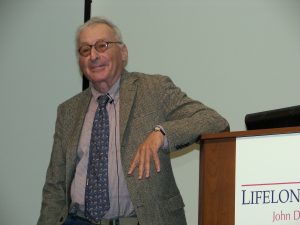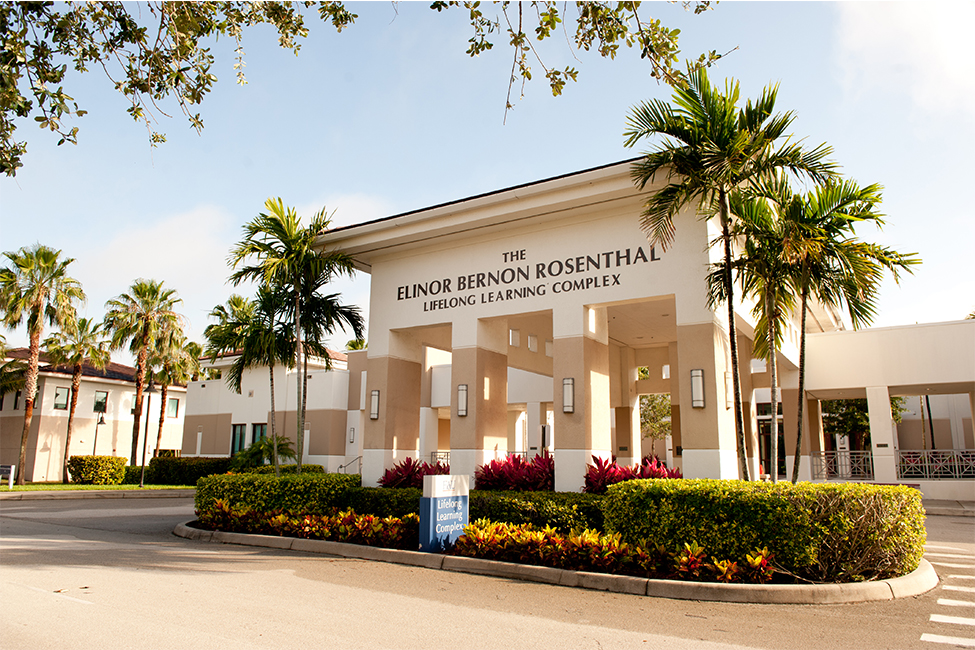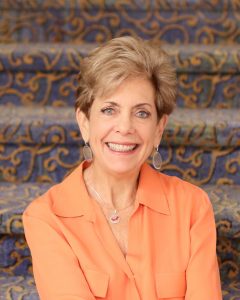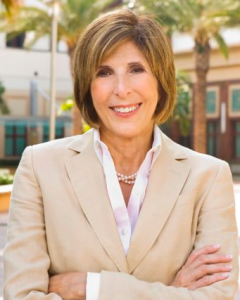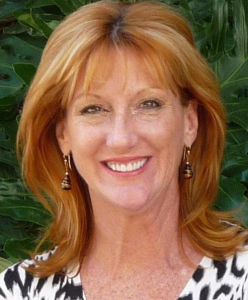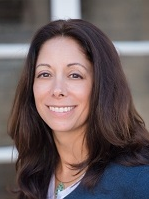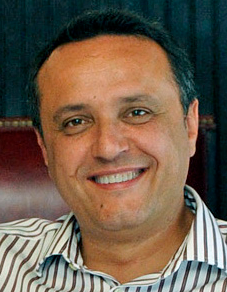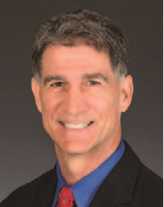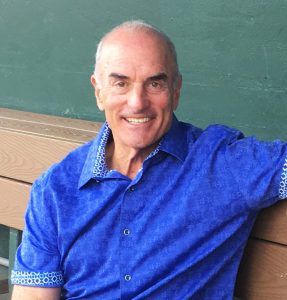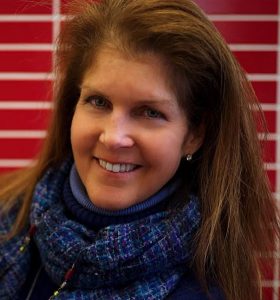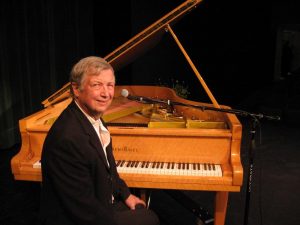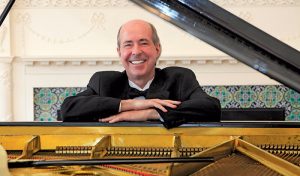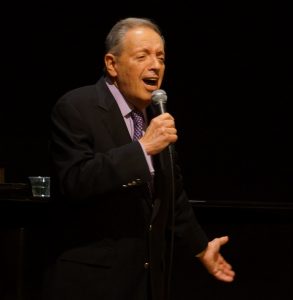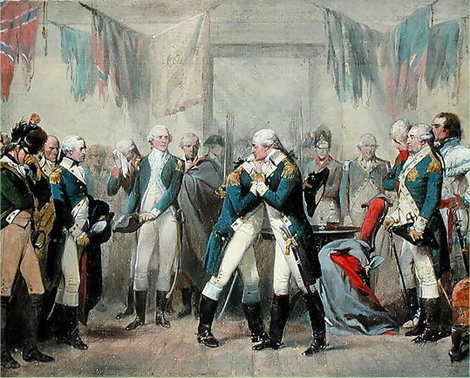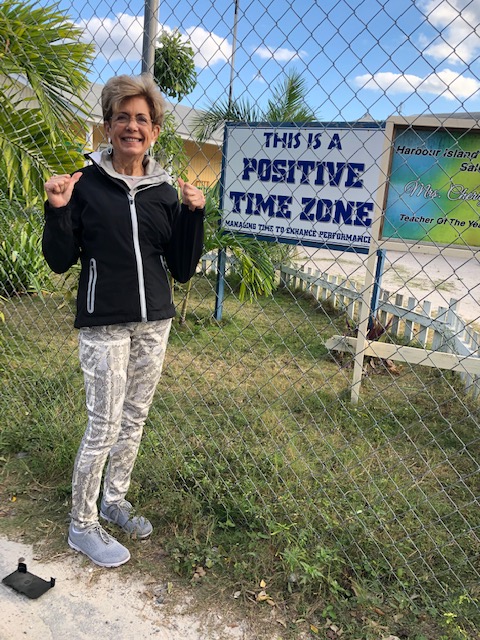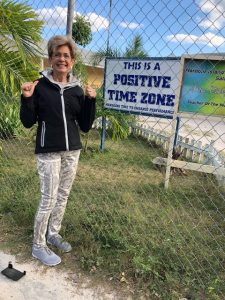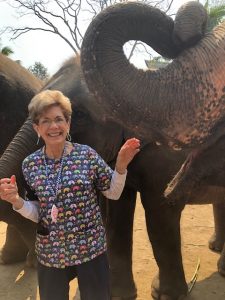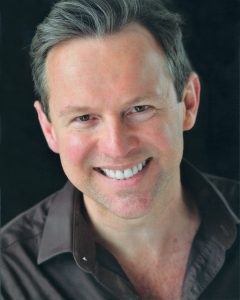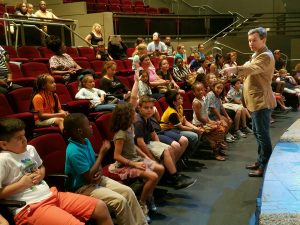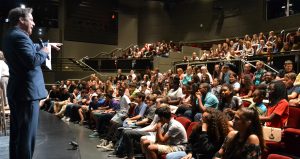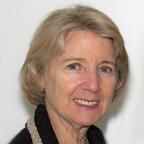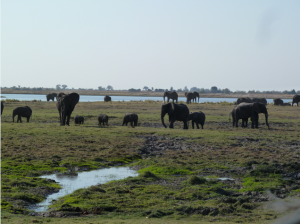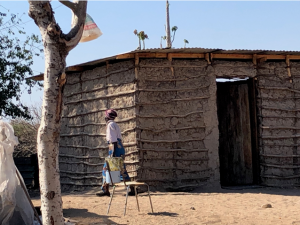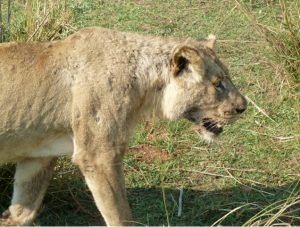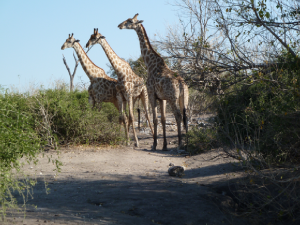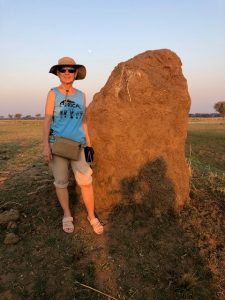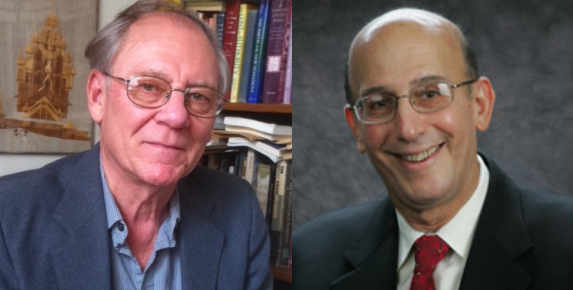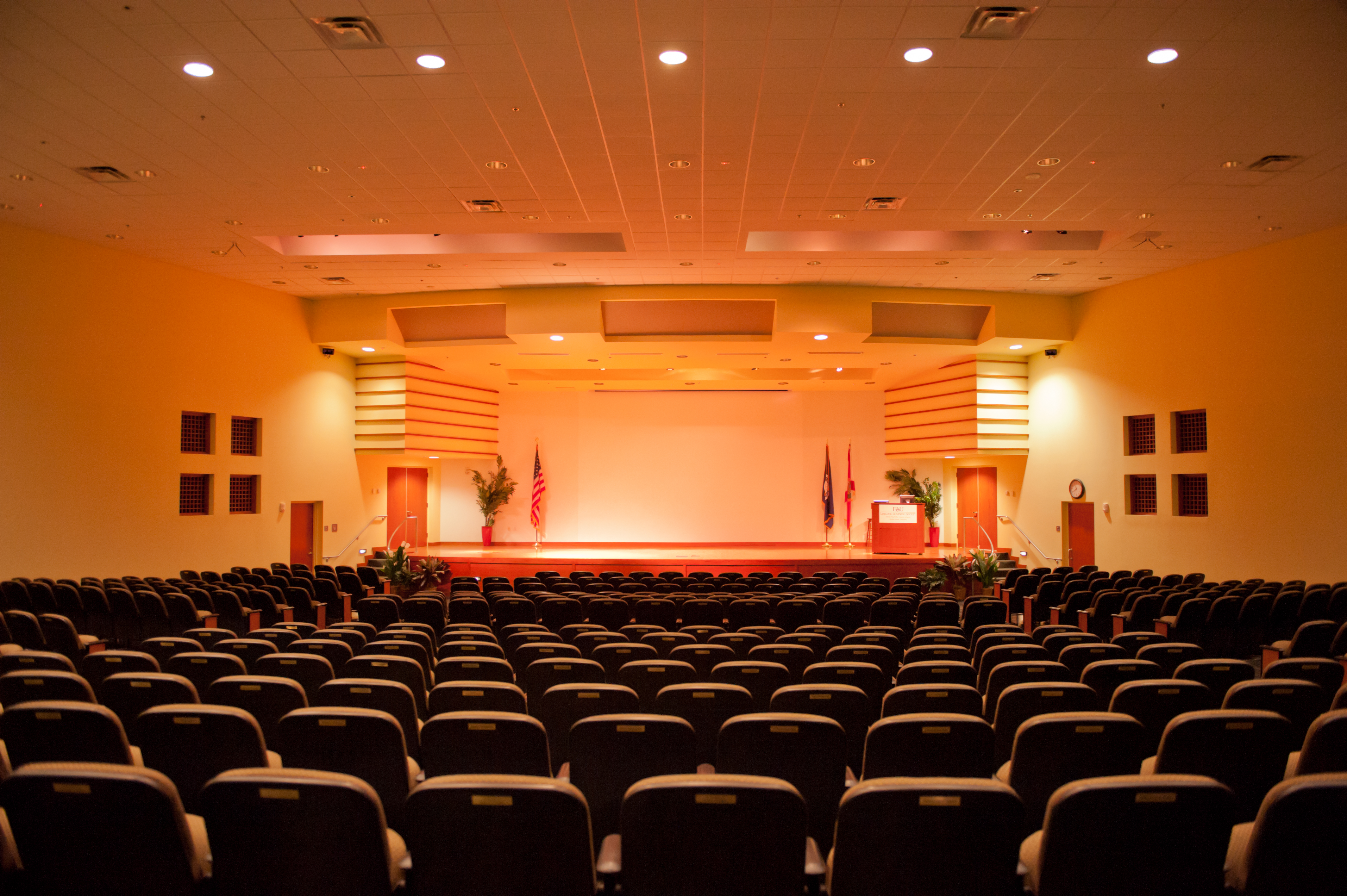
Welcome back OLLI members!
The time has arrived to get out your calendar and register for all of the exciting upcoming lectures and course for the 2019 fall semester! We hope that your summer has been filled with fun activities while enjoying the wonderful sunshine. How quickly summer concludes and our thoughts turn to preparing for the start of a new academic year. This is always one of our favorite times of the year! We at OLLI love the excitement of beginning each new school year and eagerly await welcoming our students and hearing their great summer stories. We are thrilled to be part of a team comprised of instructors, staff, volunteers and students who want to provide you with the best OLLI program!
Below is a preview of some of our fall lectures and courses. We hope that you like our fall semester selection, and we eagerly wait to welcome you to another wonderful school year!
Fall registration is now open. Click here to register.
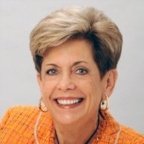
Minx Boren, M.C.C.
Minx Boren, M.C.C.
“Chronicling Life Moments: Memories, Wisdom, and Blessings”
# F4T2
Tuesdays – November 12, 19; December 3, 10
2:15 – 3:45 p.m.
I am a lifelong journal-keeper and a stand up and cheer advocate of the joys and benefits of making use of pen and paper to discover oneself on the page. My intention for the course I will be presenting this fall – Chronicling Life Moments: Memories, Wisdom, and Blessings – is to offer participants various ways of looking back (and then forward) at their lives.
In the book, Seven Ages of Paris by Alistair Horne, the French writer Colette is quoted as having said just before she died in 1954: “What a beautiful life I’ve had. It’s a pity I didn’t notice it sooner.” I find this statement riveting and a call to action. Using various tools and templates, coupled with the research from Positive Psychology on what it means to live a fulfilling life, the focus of this workshop series will be to encourage attendees to recognize and celebrate the beauty of their own lives while also considering how they might want to shape the years ahead.
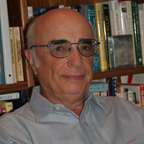
Bert Diament, Ph.D.
Bert Diament, Ph.D.
“The Psychology of Interpersonal Relationships: Dealing With Difficult Relatives And Other People Who Stress You Out”
# F1T4
Tuesday, October 29, 2019
9:30 – 11:00 a.m.
One neighbor confronts another: “Who the hell do you think you are?!!! Are you blind?!!! Can’t you see there is a line here?!!! Get on the line like everyone else!!!”
Especially if the “line breaker” was not aware of having transgressed the fundamental rule of waiting one’s turn, this confrontation is experienced as unjustified, provocative and insulting.
At this point, both parties are emotionally aroused and have a similar physiological reaction as our prehistoric ancestors did when they perceived that if they did not take action they were about to become breakfast for a saber-toothed tiger. Or, more germane, these modern characters in our drama are experiencing a similar confrontation as did their Neanderthal ancestors: Alfonse from one clan believing that Cyril from another clan was invading his territory to steal Suzette, his favorite, when in fact, Cyril just took a wrong turn in the forest.
If the accused raises the ante with a response such as “You really should not get off your antipsychotic medication!!” or, “Is this the way your mother spoke to your father?” or perhaps even worse by using the “F” word, the adversarial hostile interchange between these two individuals, who presumably went to kindergarten and “know better”, would probably escalate and result in reacting as two Neanderthals trying to kill each other.
This lecture will explain how a physiological vestige of an ancient warning system, designed to protect our ancestors from physical harm often sets off a false alarm when there is no real physical danger, and what we can do to mitigate the arousal of our emotional reactions and behave appropriately, as we learned to do in kindergarten.
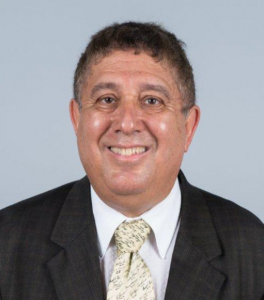
Ronald Feinman, Ph.D.
Ronald Feinman, Ph.D.
“Five First Ladies Who Had an Impact on American History”
# F1M3
Monday, December 16, 2019
12:00 – 1:30 p.m.
Five modern First Ladies had an impact on American history during their husbands’ Presidencies and are worthy of attention. We will examine the following five First Ladies:
- Eleanor Roosevelt 1933-1945
- Jacqueline Kennedy 1961-1963
- Betty Ford 1974-1977
- Nancy Reagan 1981-1989
- Barbara Bush 1989-1993
We will examine the major impact of Eleanor Roosevelt, regarded by scholars as the greatest First Lady.
We will examine the cultural and popular impact of Jacqueline Kennedy, often seen as the most glamorous First Lady.
We will examine the major role of Betty Ford on social issues in her time, both medical and personal.
We will examine the role that Nancy Reagan had on her husband, Ronald Reagan, in both domestic and foreign policy.
We will examine the role of Barbara Bush as the partner of her husband, George H. W. Bush, and her impact also on her son, future President George W. Bush.
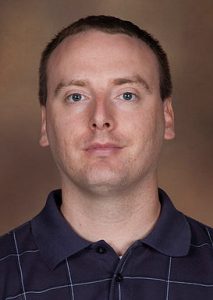
David Head, Ph.D.
David Head, Ph.D.
“George Washington and the Newburgh Conspiracy: How the General Rescued the American Revolution in the War’s Waning Days”
# F1M1
Monday, November 25
12:00 – 1:30 P.M.
The American Revolution didn’t end with the last major battle–the British surrender at Yorktown in October 1781. It stretched for another two painful years of political gridlock, near fiscal collapse, and poisonous relations between civilians and the army.
The presentation tells the story of the war’s final days through a mysterious event known as the Newburgh Conspiracy, when Continental Army officers, disgruntled by a lack of pay and pensions, may have collaborated with nationalist-minded politicians such as Alexander Hamilton to pressure Congress and the states to approve new taxes and strengthen the central government. In the midst of crisis, Washington stepped forward to rescue the Revolution with a speech–and a little help from a pair of new glasses.
Drawing from his soon-to-be-published book, A Crisis of Peace: George Washington, the Newburgh Conspiracy, and the Fate of the American Revolution, Dr. David Head delivers a fun and informative picture of how the Revolution almost failed just as it was won.
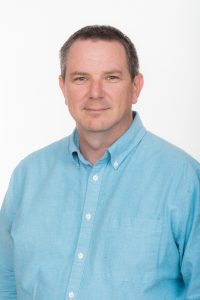
Matt Klauza, Ph.D.
Matt Klauza, Ph.D.
“The Interesting and Tragic Life of Mark Twain”
# F1T1
Tuesday, October 15
9:30 – 11:00 a.m.
“The secret source of Humor itself is not joy but sorrow. There is no humor in heaven.” Mark Twain, Following the Equator’
Mark Twain was America’s funny-man. He was able to make entire audiences roar with laughter. Most people don’t know it, but the real life of Mark Twain (real name: Samuel Clemens) was filled with sorrow from seemingly constant tragedies. However, somehow, he maintained a comic voice in the literature he produced.
I hope that you’ll join me to explore the tragedies—and the joys—of the life of Mark Twain.
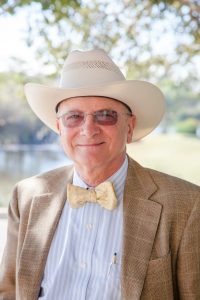
Stephen Kowel, Ph.D.
Stephen Kowel, Ph.D.
“Cyber Insecurity: Attack by Internet”
# F1R2
Thursday, November 7
12:00 – 1:30 p.m.
Maersk, a major international logistics firm, and Sony, a major entertainment conglomerate, both highly sophisticated companies, have suffered major cyber-attacks. The attack on Maersk, in 2018, that disrupted much of the world’s container shipping for a week, was an unintentional result of Russian efforts to intimidate Ukraine. The attack on Sony, in 2014, that aired volumes of private files and stole movie masters, appears to be retribution for a film deemed disrespectful of the leader of North Korea.
Every one of us is under attack. Unlike other forms of criminal activity, these attacks, even continuing for extended periods, usually go unseen, even after the damage is done. Repair is almost impossible. Hospitals must pay to ransom their files, bank accounts are pillaged, identities stolen. Can our cars be hacked?
As a nation, we must ask serious questions. When is a cyber-attack an act of war? (Is the attack on Google just Google’s problem?) Is it necessary to install trap doors and destructive bots on foreign servers? If we find them on our military servers, should we remove them, revealing that we know how to find them? The implications of a planet connected by the Internet are profound and raise troubling questions about privacy and security never faced before.
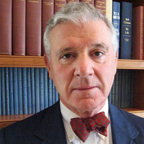
Irving Labovitz, J.D.
Irving Labovitz, J.D.
“OBJECTION! Current Contentious and Confusing Legal Battles”
# F6R1 (Full 8 Weeks) # F4R2 (Last 4 Weeks)
Thursdays – October 17, 24, 31; November 7, 14, 21
2:15 – 3:45 p.m.
No Summer doldrums for the Constitution or for the Federal judges tasked to enforce its protections. Even as I hibernate until awakening in the Fall the conflicts mount. Will our 2020 census be permitted to inquire into the US citizenship of those being surveyed even though the Constitution unambiguously mandates that only ‘persons’ be counted? If future gerrymandering litigation re-focuses on alleged violations of Constitutionally protected racial rights as opposed to testing historically partisanship efforts to retain House seats for the state party in power will it reopen viability notwithstanding a recent adverse decision of the Supreme Court.
And what will be the persuasion of the plethora of newly minted Federal judges hurriedly approved by the Senate over the past several months? Am I better off sleeping through the forthcoming Fall semester? No, if for no other reason than the optimism provided to me by learned Osher students.
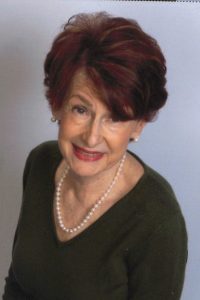
Margery Marcus, Ed.D.
Margery Marcus, Ed.D.
“The Power and Poetry of the Great Greek Tragedians”
# F1R3
Thursday, November 21
12:00 – 1:30 p.m.
Looking at the title of my lecture, I realize it now it is quite a mouthful. I may have overdone the verbiage in trying to capture the gifts left to us by Aeschylus, Sophocles, and Euripides, but I did not overstate their talents. The roots of Greek drama run right through these playwrights who practically invented action and suspense. Indeed, every time I go to the theater, I am a reminder of their importance in the history of drama.
Their works hold us breathless. We know what horrors are in store for their tragic heroes, and yet we remain riveted, waiting for the moment when catastrophe (a Greek dramatic term) strikes. Join me for a close look at works which have remained relevant for thousands of years, reminding us of the universal nature of mankind from ancient times until today.
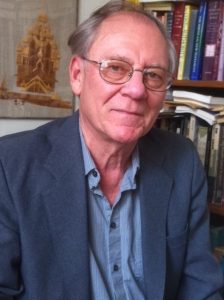
Paul Mojzes, Ph.D.
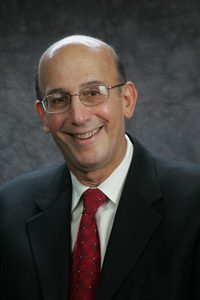
Alan Berger, Ph.D.
Paul Mojzes, Ph.D. and Alan Berger, Ph.D.
“Jewish-Christian Dialogue”
# F4T1
Tuesdays – October 15, 22, 29; November 5
2:15 – 3:45 p.m.
Two thousand years of a common history rarely produced constructive and even more rarely cooperative and friendly encounters between representatives of Judaism and Christianity. Technically, there is no Jewish-Christian dialogue, but dialogue between specific individuals or groups of Jews and Christians who are trying to learn from each other and advance the cause of mutual respect and cooperative efforts not merely for our own mutual benefit but for the “mending of the world.” The two of us, a Jewish professor, Alan Berger, and a Christian professor, Paul Mojzes, have befriended each other and in our many conversations concluded—unsurprisingly—that our nation… and even more broadly, our world is facing ominous threats and difficult choices. These are not the very worst in history for it is within living memory of many in this class that the Holocaust has taken place and there had been many, many persecutions, massacres, deportation, and dishonor, by mostly by Christianity, the religion that became more powerful and aspired to convert all of earth’s inhabitants into its own ranks.
Over the centuries, we were contemptuous of each other, suspicious of each other, afraid of each other, and isolated from each other even when we lived alongside each other. Rarely were our encounters civil. There had been public disputations between religious groups in which the civil magistrates declared a winner; the losers were frequently deported or even executed. Unsurprisingly, such contestations almost never ended well for the Jewish contestants. Then, with the Enlightenment, Jews received more toleration and greater civil liberties. But, it wouldn’t last as utter darkness and evil descended in the form of Nazism and Fascism, whose goal was “the final solution” of the “Jewish question,” namely the total eradication of Jews from the world.
It seemed that the Holocaust had shocked the Christian world, and the entire world with a pledge of “never again.” The two of us intend to discuss the impact on Jewish and Christian thinking in the post-Holocaust period. Great progress was made in the relationship between Jews and Christians in the last half a century or so. Christians admitted their complicity and sought to examine the sources of anti-Semitism among them. Jews investigated how to deal with the sense of having been abandoned by God and by their neighbors. We studied together, demonstrated together, supported the establishment and survival of the state of Israel, argued over philosophy and politics, but even worshipped together as we recognized that God is one and we are God’s dysfunctional family.
The going was never easy but now darker clouds appear on the horizon, threatening the very survival of the planet earth and human life on it. Antisemitism, racism, Islamophobia, antagonism toward immigrants is on the rise. Inhumane treatments, even of children, seem to be condoned as political exigency. All of this troubles us. We intend to raise questions of how we may proceed together –not riding together toward a beautiful sunset, but at least leaning on each other limping towards a future that does not threaten our core values. Join us for the conversation.
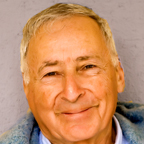
Benito Rakower, Ed.D.
Benito Rakower, Ed.D.
“The Image That Lingers – 8 Films”
#F8F5 (Full 8 Weeks) #F4F6 (Last 4 Weeks)
Fridays – October 18, 25; November 1, 8, 15, 22; December 6, 13 (No class on November 29)
1:30 – 4:00 p.m.
Post-film discussion 4-4:30 p.m.
These eight films are recognized masterpieces, yet rarely shown because of their deep psychological penetration, entrenching imageries within viewers that linger long after the films end. They do this by showing how people change, radically, when they get the “upper hand” or conversely when they lose it.
Humphrey Bogart begins as a good man and gold prospector. The glitter of gold wreaks havoc with his soul. James Mason, in his first major role, is in the IRA. A hunted man he is compelled to discover the difference between faith and patriotism.
In Sidewalks of London Charles Laughton and Vivian Leigh bring acting to a height never duplicated. This film, along with the Hunchback of Notre Dame, creates an image of urban life that reveals why people flock to cities.
La Symphonie Pastorale became a second identity for students in high school French classes. All in all, life is not easy, but always interesting as these films reveal. One of many unexpected delights is seeing how lithe and nimble Charles Laughton really was, in two of these films.
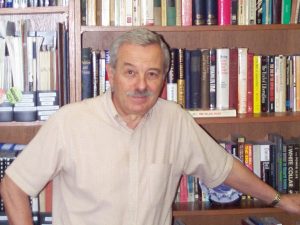
Hank Savitch, Ph.D.
Hank Savitch, Ph.D. *NEW INSTRUCTOR*
“Paris: The Unplanned and Planned Versions of a Great City”
# F1R6
Thursday, December 5
12:00 – 1:30 p.m.
“Paris,” said Hemmingway, “is a moveable feast” and, we might add, that feast changes with time. This lecture brings Paris up to date by illustrating how new development complements and contrasts with old Paris. The recent fire at legendary Notre Dame and its reconstruction is just one of the many points of interest covered. We explore how Paris can be looked at anew and in a larger context. While we cannot bring you to Paris, we can show you how you might better understand its wonders and why it endures as the “city of light.”
BIOGRAPHY
H.V. Savitch, Ph.D is a Global Fellow at the Wilson Center (Washington, DC) and Affiliate Professor at FAU’s School of Urban & Regional Planning. Savitch is also Emeritus Brown & Williamson Professor, University of Louisville. He served as co-editor of the Journal of Urban Affairs and has written thirteen books and more than 100 published articles. His co-authored volume, Cities in the International Marketplace received the best book award on urban affairs by the American Political Science Association.
Professor Savitch has worked extensively in Paris and elsewhere in France. He has lectured and taught at the Ecole National des Ponts et Chaussées and urban institutes at the University of Paris. His writings on Paris are published in both French and American outlets. Other posts include a research assignment at the National Center for Scientific Research (Bordeaux, France) and a Fulbright award at the Maison Mediterranean des Sciences de l’Homme (Aix-en-Provence, France). Savitch also served as consultant to former mayor of New York City, David Dinkins, the Department of Housing & Urban Development, the Mayors’ Urban Summit, the Organization for Economic Cooperation and Development and local governments.
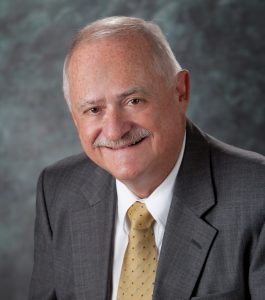
Mark C. Schug, Ph.D.
Mark C. Schug, Ph.D. (Panel Chair)
“All-Star Panel of Economists Ask: How Can Ethics, Economics, and Entrepreneurship Help You and Those Around You Live a Fulfilling Life?”
# F1T6
Tuesday, November 5
4:30 – 6:30 p.m.
Are commercial pursuits and private enterprise compatible with people living fulfilling lives? Some voices in today’s political arena and in the media say the answer is no! Is it true that free markets (or capitalism) in the United States is evil? Is there a connection between ethics, free markets, and wealth creation? Can ethical behavior and entrepreneurship go hand in hand? You are invited to attend our panel discussion to explore these timely questions. We will make sure there is time for plenty of questions.
The All-Star panelists are:
- Daniel Gropper, Florida Atlantic University, Dean of the College of Business
- Professor Keith Jakee, Economics, Florida Atlantic University, Wilkes Honors College
- Professor Kanybek Nur-tegin, Economics, Florida Atlantic University, Wilkes Honors College
- Professor Mark C. Schug, University of Wisconsin-Milwaukee, Emeritus and FAU Adjunct Professor of Economics
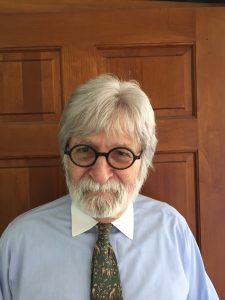
Kurt Stone, D.D.
Kurt Stone, D.D.
“From West 44th Street to the Sunset Strip: The Algonquin Round Table Goes Hollywood”
#F8M5 (Full 8 Weeks) #F4M6 (Last 4 Weeks)
Mondays – October 21, 28; November 4, 18, 25; December 2, 9, 16
7:00 – 9:00 p.m.
During the 1920s, there was no wittier, more acerbic gathering of literate souls than the playwrights, poets, and publishers who haunted, the famed Algonquin Hotel, located at 59 W. 44th Street in Manhattan. At any given lunch one might find such wags as Dorothy Parker, George S. Kaufman, Alexander Woolcott, Harpo Marx, Robert Benchley and Robert Sherwood.
When Round Tabler Ben Hecht received a cable from fellow Algonquinite Herman Mankiewicz, reading, in part, Will you accept three hundred per week to work for Paramount Pictures… Millions are to be grabbed out here and your only competition is idiots. Hecht quickly “went Hollywood,” moved into the “Garden of Alla” on the Sunset Strip, won an Academy Award for Underworld and his cynical colleagues soon followed. They quickly changed Hollywood forever.
In this course, we will view 7 of the best – if not best known – movies written by the hard-drinking cynics of the Algonquin Round Table. Their stories, scripts and films would forever change and spice up Hollywood films. The first film we shall screen, 1994’s Mrs. Parker and the Vicious Circle (1994), will introduce us to the unforgettable members of the Algonquin Round Table.
- “Mrs. Parker and the Vicious Circle” (1994): A film about Dorothy Parker, the heyday of the Algonguin Round Table and a circle of friends whose barbed wit, like hers, was fueled by alcohol and flirted with alcohol and despair. ‘
- Ben Hecht: “Topaz” (1933): Screenplay by Ben Hecht, starring staring John Barrymore and Myrna Loy in which the “great profile” plays a naïve schoolteacher who gets a lesson in how the world really works.
- Dorothy Parker “The Little Foxes” (1941): Bette Davis and Herbert Marshall star in the story of the moneyed, conniving Hubbard clan in the early 20th century South. Nominated for 9 Academy Awards.
- Hecht & MacArthur “The Scoundrel” (1935): Noel Coward stars as a ruthless publisher who dies in a plane crash but is given a one-month extension on life in which he must find one person to mourn his passing in order to get into heaven.
- Robert E. Sherwood “Abe Lincoln in Illinois” (1940): Raymond Massey and Ruth Gordon. The young pre-presidential Abe and Mary Todd Lincoln gain the respect of their Illinois neighbors as they begin making their way up the political ladder. From Sherwood’s 1938 Pulitzer Prize play.
- George S. Kaufman “A Night at the Opera” (1935): Generally considered the best of all Marx Brothers movies, Co-starring Alan Jones, Margaret Dumont and Kitty Carlyle, the future wife of Kaufman’s frequent collaborator, Moss Hart.
- Donald Ogden Stewart “An Affair to Remember” (1957): Screenplay by the then blacklisted Donald Ogden Stewart. Cary Grant and Deborah Kerr star in one of the all-time great romance films. The basis for many films, including “Sleepless in Seattle.”
- Herman Mankiewicz “The Enchanted Cottage” (1945): Robert Young and Dorothy McGuire A homely maid and a battle-scarred soldier fall in love and move to a cottage where they look beautiful to one another – but no one else. Adapted from a play by Sir Arthur Wing Pinero.
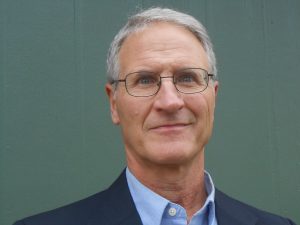
Michael Tougias
Michael Tougias
“14 Steps to Strategic Decision Making: JFK and The Cuban Missile Crisis”
# F1T8
Tuesday, November 19
9:30 – 11:00 a.m.
Did you know that because of four little-known incidents during the Cuban Missile Crisis we and the Soviets were a whisker away from nuclear war? And all four incidents were either misunderstandings, blunders, or because of an individual taking matters into their own hands without the approval from Kennedy or Khrushchev. In my November 19th slide presentation, I’ll discuss these incidents and will also show how President Kennedy’s deliberations were methodical and ultimately successful. I want the audience to be both entertained and on the edge of their seat to see what happens next, but also to learn the keys to successful decision making whenever you are faced with a significant challenge.
Kennedy secretly audio recorded over 100 hours of meetings on the Cuban Missile Crisis and studying those transcripts during my research into my bestseller Above & Beyond was key to gaining insights into the steps the President made to come to a successful outcome. Much of the book is also told through the eyes of the U-2 Spy Plane Pilots who put their lives on the line flying over Cuba during the crisis, and how one of our pilots made the ultimate sacrifice when a Soviet surface to air missile hit his aircraft.

Gary Wiren, Ph.D.
Gary Wiren, Ph.D.
“Fascinating Stories of the Hidden Values in Playing the Game of Golf”
# F1T3
Tuesday, October 22
6:00 – 7:30 p.m.
Playing golf is an activity considered by some as being of questionable importance and may even be a waste of time. These same “naysayers” are overlooking the many personal values that can be found from participation in the game. Those values can best be recognized when hearing the stories of golfers who have experienced them. Confidence, Perseverance, Honesty and Courtesy easily will be realized by all who golf as values that solidly are connected to the game. Each time a golfer tees up a ball to play, he/she will face any one of those in addition to many others.
In this presentation, you will see and hear about famous players who have faced such situations and how they handled them. These inspirational stories also will demonstrate Integrity, Humility, Responsibility, Sportsmanship, and other positive principles that can be both amusing and educational. When revealed they lend a strong positive statement to golf, the game of a lifetime.



